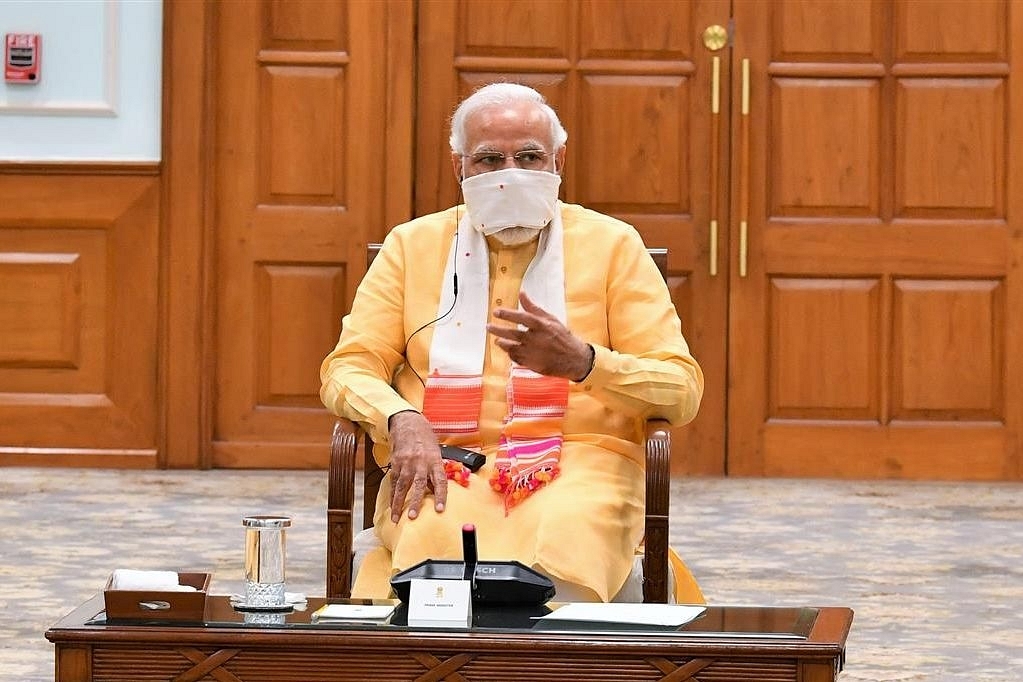Ideas
Why Modi Government Is Stingy With Stimulus: The Two Cs Crimping It Are China And Covid-19 Vaccine Rollout Costs
- The Modi government is essentially being ultra-careful with its spending primarily because it cannot ignore the Chinese threat in 2020-21.

Prime Minister Narendra Modi.
Most economic experts are asking three questions: why is the Narendra Modi government being so fiscally conservative when a real stimulus is sorely needed?
The latest Rs 73,000 crore stimulus is neither here nor there. Half the money will go to fund some infrastructure and defence projects, including a Rs 12,000 crore interest-free, 50-year loan to states, and the other half is supposed to induce government employees to use up their leave travel concession money to buy goods which incur more than 12 per cent goods and services tax (GST).
The second thing that perplexes experts is why the GST Council is deadlocked even after several meetings to untangle the issue of GST compensation. The Centre has offered to facilitate loans to states, while the states themselves say the Centre should borrow on its own instead of forcing them to do so.
The matter could still end up in court, and the Finance Minister’s assertion that if the Centre borrowed the amount it would push up interest rates is not quite convincing, given that the Reserve Bank of India (RBI) Governor is more than happy to help the government out when the economy has tanked. Also, giving the states their compensation dues will provide the exact kind of demand stimulus we need.
The third question that is frequently being asked is why the government is unwilling to monetise some debts so as to provide an economic stimulus? Why is the Modi government almost the only one in the world to seek fiscal prudence when every other country is providing generous cash to its people and companies to go out and spend?
There is actually only plausible answer, and that answer is China. If we put the possibility of war as part of the Modi government’s calculations in deciding fiscal policy right now, all three questions get answered.
If you are expecting a war with China this winter, or a prolonged standoff that requires many dollops of financing for buying defence equipment and providing support to our forces on the border, it is very clear that blowing up money on a fiscal stimulus is not an easy proposition. That can happen only if the probability of war reduces.
Also, if a war forces India to put an embargo on Chinese imports as part of the likely reprisals, it will create its own depressing impact on domestic demand and supplies of electronic goods and pharmaceutical ingredients. And with a Covid vaccine due by mid-2021, a nation-wide rollout can cost close to Rs 80,000 crore, according to the Serum Institute.
Take the defence and Covid costs together, and we are essentially talking of money that could have gone into a stimulus being saved up substantially for those contingencies.
India will have to budget for anything from Rs 1.5 lakh crore to Rs 2 lakh crore to fund both costs in the rest of this fiscal year and in calendar 2021. War in the cold mountains of Ladakh, or even maintaining a large army presence at those heights, involves huge costs.
The Modi government is essentially being ultra-careful with its spending primarily because it cannot ignore the Chinese threat in 2020-21.
Support Swarajya's 50 Ground Reports Project & Sponsor A Story
Every general election Swarajya does a 50 ground reports project.
Aimed only at serious readers and those who appreciate the nuances of political undercurrents, the project provides a sense of India's electoral landscape. As you know, these reports are produced after considerable investment of travel, time and effort on the ground.
This time too we've kicked off the project in style and have covered over 30 constituencies already. If you're someone who appreciates such work and have enjoyed our coverage please consider sponsoring a ground report for just Rs 2999 to Rs 19,999 - it goes a long way in helping us produce more quality reportage.
You can also back this project by becoming a subscriber for as little as Rs 999 - so do click on this links and choose a plan that suits you and back us.
Click below to contribute.
Latest